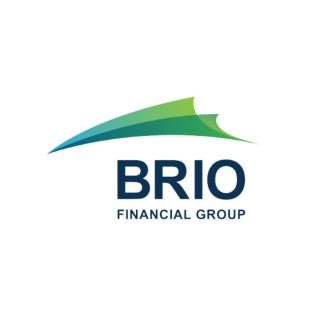
Why You Might Want to Create a Donor-Advised Fund
by Brandon Miller on Dec 19, 2018
Do you regularly donate to charities and other non-profit organizations? Then you may want to open a donor-advised fund.
Donor-advised funds are becoming popular. It is easy to see why. They offer potential tax perks, and in some instances, a chance to grow money set aside for charitable gifting.1,2
It is all too easy to think of charitable gifting in either very small or very large terms: that “Norman Rockwell” moment when someone puts a few dollars into a metal box during the holiday season, and that big moment when a billionaire CEO donates millions to a college or hospital through a private foundation. Donor-advised funds represent a middle ground, a way for you to make significant gifts without having to deal with a private foundation’s paperwork and time commitment.
Financial institutions manage some of these accounts; others are overseen by community organizations. DAFs can be started with relatively small sums: a minimum of $5,000 is not unusual. Please note that contributions to DAFs are irrevocable.1
These funds offer you a tax break and a degree of flexibility. You can claim an immediate charitable tax deduction for the amount you direct into a donor-advised fund, and you advise the fund where the money should go. It can go to multiple charities, not just one.1,3
You decide when you want donations to be made; you can go years without making any if you wish. (In contrast, private family foundations must distribute 5% or more of their net investment assets each year, by law.) You may make ongoing contributions to your DAF, and you can often choose to have the assets invested and professionally managed once the account balance hits a certain (high) level.1,2
A donor-advised fund may even provide a triple tax break. Besides the upfront charitable deduction, there are two other opportunities for tax savings here. When you transfer highly appreciated securities into a DAF, you avoid the capital gains tax you would pay if you simply sold them (and that could mean saving thousands of dollars). In addition, those securities can benefit from tax-free growth once they are in the DAF.3
If you are wealthy enough to initially fund a DAF with a big lump sum, it may be better to itemize and take a large charitable deduction in the year of its creation rather than simply take the standard deduction. Additionally, thanks to the fund’s flexibility, you do not need to plan how that lump sum should be distributed to charities in that first year. Perhaps $0 comes out of the DAF in the first year, with charitable distributions beginning in successive years.1,3
Donor-advised funds also allow you to easily track your charitable gifting. Use one of these financial vehicles, and the assets you earmark for charity can be distributed from a single source.1
Whether you routinely or occasionally donate to non-profit organizations, a donor-advised fund is worth considering. It may give you a great way to do good.
This material was prepared by MarketingPro, Inc., and does not necessarily represent the views of the presenting party, nor their affiliates. This information has been derived from sources believed to be accurate. Please note - investing involves risk, and past performance is no guarantee of future results. The publisher is not engaged in rendering legal, accounting or other professional services. If assistance is needed, the reader is advised to engage the services of a competent professional. This information should not be construed as investment, tax or legal advice and may not be relied on for avoiding any Federal tax penalty. This is neither a solicitation nor recommendation to purchase or sell any investment or insurance product or service, and should not be relied upon as such. All indices are unmanaged and are not illustrative of any particular investment.
The opinions expressed in this article are for general informational purposes only and are not intended to provide specific advice or recommendations for any individual or on any specific security. It is only intended to provide education about the financial industry. To determine which investments may be appropriate for you, consult your financial advisor prior to investing. Any past performance discussed during this program is no guarantee of future results. Any indices referenced for comparison are unmanaged and cannot be invested into directly. As always please remember investing involves risk and possible loss of principal capital; please seek advice from a licensed professional.
Brio Financial Group is a registered investment adviser. SEC registration does not constitute an endorsement of Brio Financial Group by the SEC nor does it indicate that Brio Financial Group has attained a particular level of skill or ability. Advisory services are only offered to clients or prospective clients where Brio Financial Group and its representatives are properly licensed or exempt from licensure. No advice may be rendered by Brio Financial Group unless a client service agreement is in place.
1 - cnbc.com/2018/10/04/sheryl-sandberg-used-this-strategy-to-donate-surveymonkey-shares.html [10/4/18]
2 - theatlantic.com/business/archive/2017/12/donor-advised-funds-deduction-charity/548324/ [12/13/17]
3 - dailycamera.com/business-columnists/ci_32200646/dave-gardner-make-your-generosity-count-come-tax [10/14/18]
